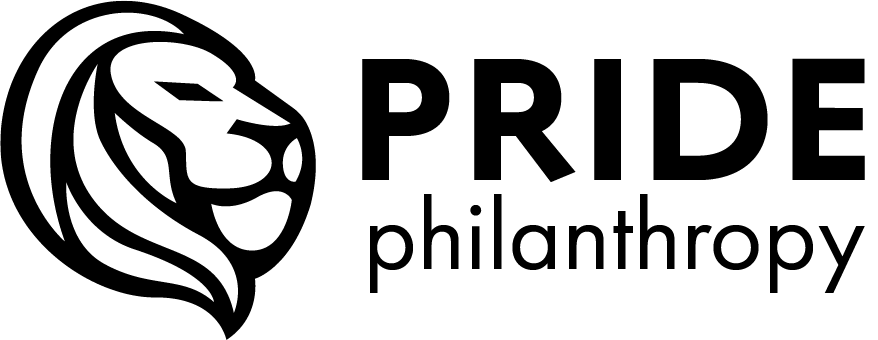Understanding Generational Giving Patterns for Successful Fundraising
As we navigate the digital age and its impact on every aspect of our lives, one area where the shift is apparent is in the world of fundraising. While some themes in fundraising ring true for virtually everyone, each generation has its unique preferences and patterns when it comes to communication and charitable giving.
Understanding these nuances can lead to successful fundraising efforts tailored to each group's preferences and behaviors. This post explores the primary generations currently active in the giving landscape: Baby Boomers, Generation X, Millennials, and Generation Z.
Baby Boomers (born 1946-1964)
Baby Boomers, currently the generation with the most disposable income, are obviously a key demographic in fundraising efforts. Research shows that they donate generously, and their favored method of giving is often through direct solicitation from relationship building. Direct mail tends to work better on Baby Boomers than it does on any other generation.
Boomers also appreciate personalized communication. Regular updates about the impact of their contributions go a long way. This generation responds well to telephone communications and volunteer opportunities.They appreciate chit-chat and building relationships with those they are not yet connected with.
It's worth mentioning that this generation didn't grow up with digital technology, however they are quickly becoming increasingly tech-savvy. Therefore, while they might prefer telephone and in-person communication, it's crucial not to overlook online channels when communicating with Baby Boomers.
Generation X (born 1965-1980)
Often referred to as the "middle children" of the 20th century, Gen Xers balance traits of both Boomers and Millennials. While they are comfortable with digital technology, they also appreciate traditional methods of communication. Statistically this group prefers to donate online but also has been known to respond to direct mail.
Gen Xers are research-oriented. They're interested in your organization's mission and the precise outcomes of their giving. Transparency and authenticity go a long way with this group. Small talk is less important to Generation X than their Baby Boomer counterparts, and Gen Xers appreciate when you are up front do not “beat around the bush”.
Generation X is a smaller generation than both the Baby Boomers and Millennials, and often feels overlooked by those both older and younger than them. Keeping them in the loop and making them feel valued goes a long way with this generation, but there is less need for all the ‘flash’ with this group.
Millennials (born 1981-1996)
Millennials have come of age during the digital revolution and are very comfortable with technology. While they might have experienced the “dark ages” when they were younger, they certainly have stayed ahead of the curve as they have grown older when it comes to the digital age. They prefer to give online and understand the dynamics of things like crowdfunding efforts more than their older counterparts. Mobile giving is particularly effective with this group, as they tend to be smartphone-dependent.
This generation values experiences and connections. The Millennials are less concerned with material things than older generations, and are less set on giving to “Brick and Mortar” projects. They want to feel emotionally engaged with the causes they support, and are less concerned with giving to create a physical structure. Sharing compelling stories about your organization’s impact can significantly influence this generation’s giving habits.
Also, keep in mind that Millennials respond well to opportunities to get involved beyond just monetary donations, such as volunteering or event participation. Beyond just knowing and hearing about their impact, they want to be there to actually see and experience the impact of their gift. So with the millennial crowd, think “Head, Heart, and Hands”.
Generation Z (born 1997-2012)
Generation Z is just beginning to enter the workforce with many still in school, but they're already making surprisingly big waves in the philanthropic world. They are digital natives, having grown up with smartphones, social media, and online banking. Most have no real memories of a time before computers. Therefore, they are most likely to donate online through mobile apps or QR codes.
Gen Z is motivated by causes they feel passionate about, often driven by social justice and environmental issues. They are also the most likely to be influenced by social media and to follow the trends of “influencers”. They tend to trust their successful online peers who endorse a particular product or mission. Think of this as the peer-to-peer fundraising for the digital age.
Visual storytelling is key for Gen Z, who respond well to compelling videos and images. Keep your messages succinct and easy to understand very quickly, as this generation is used to scrolling quickly through content. Grabbing attention early is essential with Generation Z. If you are not compelling in your communication almost immediately, you have likely already lost a Gen Z donor. It is worth noting that Generation Z has the least disposable income out of any of the older generations, but it is worthwhile to know their giving styles as we move into the future and this generation accumulates wealth over time.
While these observations are based on general trends and research, it's essential to remember that individuals within each generation can differ widely in their preferences and habits. There are also certain things that remain true across all generations that are just good fundraising practices in general. By understanding these unique generational traits and preferences, your organization can create fundraising strategies that resonate with each donor group, leading to stronger connections and increased giving.
Want more information on Generational Giving? We will go into A LOT more detail at our annual fundraising conference this year in our Generational Giving session. We hope you can join us at the beach!

